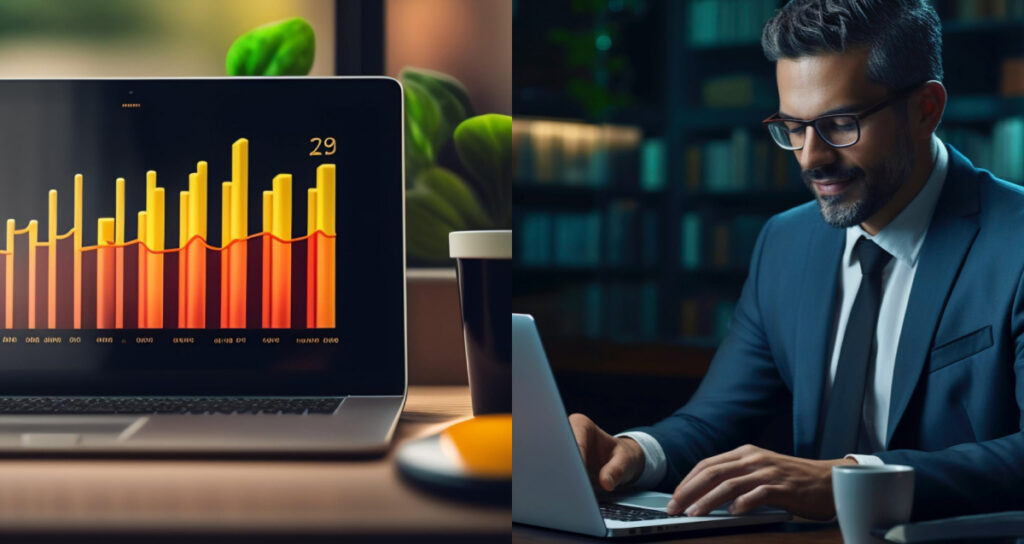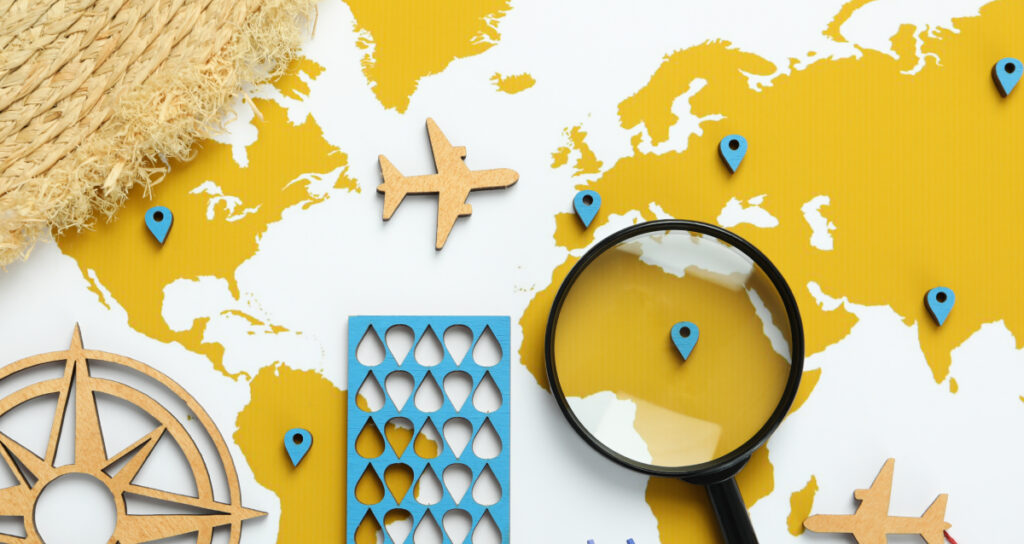
As a travel manager, data is one of your most powerful tools for managing your company’s travel program efficiently and strategically. It requires analyzing key travel manager data metrics, uncovering insights, and using data to optimize your program.
In today’s data-driven business environment, successful travel management means going beyond simply arranging trips and cutting costs. Tracking the right data can help travel managers demonstrate the value of the travel program to stakeholders, enhance traveler satisfaction, and reduce risks. However, focusing on key metrics in a travel manager report is crucial with so much data available.
This blog will overview the top 10 travel manager data metrics that you should track to get the information they need to make informed, strategic decisions about their travel program.
1. Bookings Metrics
The number and types of bookings employees make through the travel program provide critical insights for travel managers. Tracking core booking metrics allows you to identify trends, optimize policies, leverage preferred suppliers, and demonstrate travel program value.
Key booking metrics to track include:
- Total number of bookings
- Bookings by channel (online booking tool, travel management company, agent-assisted, etc)
- Bookings by category (air, hotel, ground transportation, meals, etc)
- Bookings by supplier
- Average spend per booking
- Bookings within preferred suppliers and programs
- Bookings within the travel policy
Tracking the travel manager data metrics regularly in a report helps understand program usage, traveler behaviors, and opportunities to optimize. For example, monitoring bookings by channel can reveal if travelers are shifting towards or away from online booking adoption.
2. Travel Spend
One of the most essential travel metrics a travel manager should track is overall travel spend and spend by category. This provides visibility into total program costs and helps identify areas of overspending.
-Overall travel spend: Add up all booking costs (air, hotel, car rental, rail, etc) to calculate total spend. Compare over time to identify trends and outliers. Set targets for future budget planning.
-Spend by category: Break down spending by travel category, such as airfare, lodging, and ground transportation. Analyze which categories are driving costs up. Identify if certain suppliers are more expensive.
Monitoring travel spending metrics consistently lets travel managers right-size budgets, reduce maverick spending, implement cost-saving initiatives, and demonstrate the value of the travel program.
3. Travel Policy Compliance
High travel policy compliance helps ensure organization and consistency without encroaching on needed flexibility. Track the percentage of bookings that are in-policy versus out-of-policy and year-over-year trends.
A travel manager report on compliance rates by department, executive status, geographic region, business unit, and other filters is used to identify where increased compliance would have the most impact. Analyze out-of-policy of travel manager data metrics trends to understand common reasons for non-compliance, updating policies where flexibility is warranted. With travelers and travel managers accountable, policy compliance optimization protects your program’s financial health.
4. Supplier Performance
Measuring and tracking the performance of key travel suppliers like airlines, hotels, and ground transportation is crucial to ensuring travelers have good experiences on the road. As a travel manager, you want to know which suppliers consistently deliver high-quality service, competitive pricing, and good value. This allows you to guide travelers better, negotiate future deals, and reward your best vendors.
Some key metrics to track for major suppliers include:
- On-time performance for airlines and ground transport
- Customer satisfaction scores for airlines, hotels, rental cars
- Response times for support requests with vendors
- Competitiveness of pricing compared to alternatives
- Commission rates, rewards earnings, and benefits provided
- Amenities, upgrades, and perks offered to travelers
- Cancellation and change policies
By regularly reviewing performance travel manager data metrics on suppliers, you can determine which partners are excelling or underperforming. This enables you to take action, like negotiating improved terms with top suppliers or reducing the use of poor performers.
5. Traveler Satisfaction
Understanding and monitoring traveler satisfaction is a key metric for travel managers. By gathering feedback directly from employees, you can identify pain points in the travel program and opportunities for improvement.
Two important metrics to track are:
Traveler feedback scores: Conducting travel manager report on a regular basis provides quantifiable travel manager data metrics on the traveler experience. Look at satisfaction ratings across different aspects like the online booking tool, travel policy, preferred suppliers, etc. Set goals for achieving a certain minimum satisfaction score.
Net Promoter Score (NPS): This measures traveler loyalty by asking, “How likely are you to recommend our company’s travel program to a colleague?” Scores are segmented into Promoters, Passives, and Detractors. The NPS is calculated by subtracting the percentage of Detractors from Promoters. A high NPS indicates travelers are having a positive experience.
You can take proactive steps to refine the travel program by regularly monitoring traveler satisfaction through surveys and NPS.
6. Duty of Care & Risk
Keeping travelers safe should be a top priority for any travel manager. Tracking metrics related to traveler risk and duty of care can help identify issues and opportunities for improvement.
Traveler tracking: Use your TMC reporting to track the percentage of travelers you can contact in an emergency. Aim for 100% contactability.
Incidents: Monitor the number of monthly incidents or crises involving your travelers. Tracking this over time can reveal if your duty of care protocols are effective. Look at incident categories like security, health, and natural disasters and determine if preventative measures could help avoid similar incidents.
7. Unused Tickets
One of the most important travel manager data metrics is the percentage of unused tickets. This refers to the airline, train, rental car, or other tickets that were booked but never used. There are several reasons why monitoring unused tickets is critical:
- It represents wasted money spent on bookings that provided no value. Even if tickets are refundable, change fees or administrative costs are often involved.
- A high rate of unused tickets indicates poor travel planning, booking too far in advance, and overestimating needs. It points to potential process improvements.
- For certain suppliers, it can represent lost opportunities to shift volume and negotiate better discounts.
Setting a target for unused tickets, monitoring the metric regularly, and analyzing the root causes are key.
8. Traveler Preferences
Travel managers should pay close attention to the preferences of their business travelers. This includes monitoring preferred airlines, hotel chains, and car rental agencies.
It’s important to understand loyalty patterns in a travel manager report among travelers and identify the suppliers they gravitate towards. This allows travel managers to negotiate better rates and services with those preferred vendors.
Some of the key travel manager data metrics are:
- Percentage of bookings with preferred airlines
- Percentage of bookings with preferred hotel chains
- Percentage of bookings with preferred car rental agencies
- Identify suppliers with the highest traveler satisfaction scores
- Monitor loyalty program enrollment and activity
By analyzing traveler preferences and loyalty, travel managers can tailor their travel programs to their needs. This increases traveler satisfaction and compliance. It also allows travel managers to consolidate spending with fewer suppliers to maximize negotiating leverage.
9. Savings and ROI
Savings and Return on Investment (ROI) in a travel manager report are pivotal metrics for travel managers to track as they provide tangible evidence of the effectiveness and value of the organization’s travel program.
Tracking ROI enables travel managers to monitor and control travel expenses along with travel manager data metrics effectively. By comparing actual expenses against projected budgets, they can identify areas where costs can be optimized, such as negotiating better rates with vendors, leveraging economies of scale, or implementing cost-saving measures like travel policy compliance.
10. Carbon Emissions
Tracking carbon emissions associated with business travel is an essential metric for travel managers who aim to mitigate the environmental impact of their organization’s operations. It aligns with corporate social responsibility goals and demonstrates the organization’s commitment to environmental sustainability.
By quantifying the environmental impact that is portrayed in the travel manager report, companies can take proactive steps to reduce their carbon footprint and contribute to global efforts to combat climate change.
Utilize carbon accounting software or online calculators to track carbon emissions from travel and other business activities. These tools often automate emission calculations based on input data and emission factors, streamlining the tracking process and providing accurate emission estimates.
Get Travel Manager Data Metrics On ITILITE
Discover the unparalleled power of ITILITE, your ultimate travel management software. Step confidently towards a more cost-efficient travel process, guided by insightful recommendations tailored to your unique business landscape. With ITILITE being a unified corporate travel management, you will get:
Real-Time Data Access
Experience the dynamism of real-time data access at your fingertips. Dive into a wealth of information with 30+ pre-built reports on travel, providing instant insights into your travel program’s performance. You can also craft over 100 custom reports free of cost, precisely designed to meet your unique business needs.
Bespoke Dashboards for Success
Build your own sleek dashboards that align seamlessly with your company’s requirements. Showcase the most critical metrics in a visually appealing manner, giving you a comprehensive view of your travel program’s impact.
Mastermind for Step-by-step Measures
Meet your virtual travel consultant, ITILITE Mastermind. This innovative feature benchmarks your industry, predicts potential cost savings in your travel process, and presents step-by-step improvements to help you achieve remarkable savings.
Book a free trial with us to experience these benefits yourself.

















